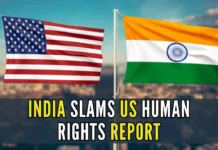
[dropcap color=”#008040″ boxed=”yes” boxed_radius=”8px” class=”” id=””]A[/dropcap]t a time when the world is witnessing a boom in smart phone-assisted technologies helping healthcare providers, India cannot be lagging behind to give the “health for all” dream a much-needed boost, feel experts.
Physicians the world over are increasingly using Smart phone-compatible medical devices to gather crucial health data in an efficient way. These Smart phone devices allow patient data to be automatically recorded, stored and transmitted securely. Everything from boosting cancer research to information on sexual preferences is now part of the Smart phone revolution.
“India is ready for Smart phone-assisted health aid. Lots of such apps are already being used here. It will help the needy keep track of their health on a daily basis,” Dr Rommel Tickoo, senior consultant (internal medicine) from Max Healthcare in the capital, told IANS.
[dropcap color=”#008040″ boxed=”yes” boxed_radius=”8px” class=”” id=””]A[/dropcap]ccording to Dr Ashish Bachhav, head of department (cornea refractive) at Vision Sankara Eye hospital in Mumbai, although traditional methods are still the gold standard in diagnosis and treatment, “smart phones-based apps can not only assist in finding nearest health care expert but also store the patients’ record in a better way”.
Vision Sankara is part of the Sankara Eye Care Institutes in Mumbai and was a segment of Sri Kanchi Kamakoti Medical Trust founded in 1977 in Coimbatore.
“India is ready for smart phone-assisted health aid in the field of neurosurgery and neurological disorders. It has a huge potential to transform neuro healthcare, especially for the rural and semi-urban population of our country,” Dr Mohinish Bhatjiwale, director (neurosurgery minimally invasive brain and spine) at Nanavati Super Specialty Hospital in Mumbai, told IANS.
According to a recent research published in American Medical Association’s Journal of Ethics, authors Michael A Batista and Shiv M Gaglani emphasise that by providing health information and instructions in a user-friendly interface, smart phone-synced devices empower patients to take an active role in their own health.
“Unlike older generations of at-home monitoring equipment that required manual record keeping, these smart phone devices present that data in comprehensive visual formats such as graphs that convey trends over time,” they wrote, suggesting that such apps may ultimately enhance patient engagement.
“Accessibility and availability will soon make it popular among the healthcare providers,” adds Dr Rahul Gupta, senior neurosurgeon and spine surgeon from Fortis Healthcare.
[dropcap color=”#008040″ boxed=”yes” boxed_radius=”8px” class=”” id=””]S[/dropcap]”mart phone-based technology can help early consultation and facilitate better treatment. New modified apps can be trusted once they are tested extensively but it should always be done under the supervision of a good medical practitioner,” Dr Gupta added.
Dr Nupur Gupta, gynecologist and obstetrician and director of the Well Women Clinic in Gurgaon, says in current scenario, “doctors need to be up to date with technology, so we have also started using modern methods of consultations.”
According to her, the technology has already moved into the Indian healthcare sector and there are several apps offering online services not only for basic consultations but also for a second medical opinion.
Researchers Batista and Gaglani feel that as smart phone-enhanced medical devices continue to be integrated into patients’ lives at home, the next step is clinical adoption.
“Dr Eric Topol (a US-based renowned professor of genomics and the Scripps endowed chair in innovative medicine) who has twice diagnosed arrhythmias on airplanes using a mobile electrocardiogram (ECG) is a leading supporter of smart phone-based healthcare,” they wrote.
[dropcap color=”#008040″ boxed=”yes” boxed_radius=”8px” class=”” id=””]M[/dropcap]obile physicians, such as those in emergency medicine, will find clear value in portable devices that can, for example, capture focussed assessment with sonography for trauma (FAST) images and send them through a smart phone to the hospital ahead of the patient for pre-arrival diagnosis by a physician.
Kourosh Kalantar-zadeh, professor at RMIT University in Melbourne, Australia, has recently devised a smart phone-based handheld device that will help people detect nitrogen dioxide (NO2), a significant air pollutant.
“The revolutionary method we have developed is a great start to creating a handheld, low-cost and personalised NO2 sensor that can even be incorporated into smart phones,” Kalantar-zadeh said in a paper published in the journal ACS Nano..
[dropcap color=”#008040″ boxed=”yes” boxed_radius=”8px” class=”” id=””]A[/dropcap]ccording to Dr Tickoo, apps can act as better screening tools. “The new-age gadgets and apps can help us know what is going wrong with our health so that we can seek medical advice,” he adds.
The new-age technologies can act as an adjunct to the traditional methods and the smart phone-based apps can spread awareness about many ailments, experts sum up.
Notes:
1.IANS
- Pentagon cancels aid to Pakistan over record on militants - September 2, 2018
- The curious case of Tamil Nadu’s opposition to NEET - September 4, 2017
- If 2.6 Billion People Go To War: India vs. China - July 22, 2017










